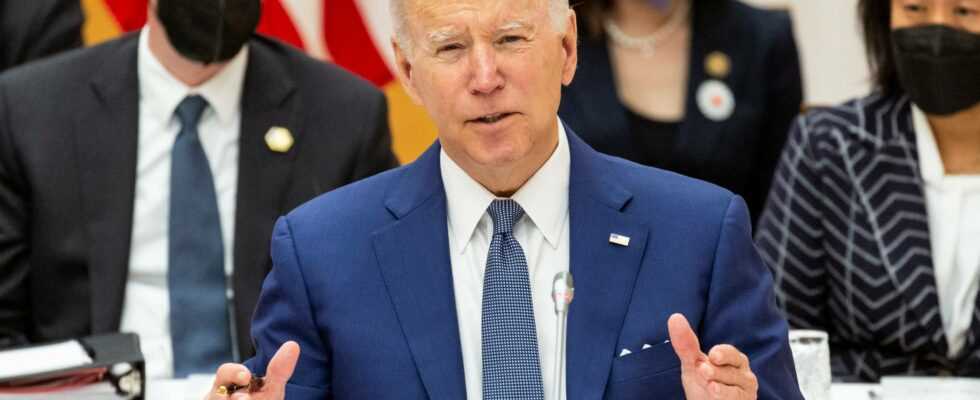US President Joe Biden confirmed in Tokyo on Tuesday that Washington’s “strategic ambiguity” on Taiwan remained unchanged, while he had assured the day before that the United States would defend the island militarily if it were attacked by China.
“No,” Mr. Biden replied when asked by journalists if this American doctrine on Taiwan was now a thing of the past. “The policy has not changed at all, I said it yesterday (Monday, editor’s note)”, he added.
For several decades, the American “strategic ambiguity” vis-à-vis Taiwan has consisted in diplomatically recognizing only mainland China, while committing to give the autonomous island the military means to defend itself in the event of an attack. invasion, but without explicitly promising American intervention.
The White House and then the Pentagon had already hastened on Monday to ensure that this doctrine had not changed after the last words of Mr. Biden, which the media around the world wondered how to interpret: reinforced firmness vis-à-vis screw Beijing or new presidential blunder?
China accuses US of ‘playing with fire’
“This is the commitment we made,” Biden said in Tokyo on Monday when the press asked him if the United States would intervene militarily in the event of an invasion of Taiwan, unlike that of the United States. Ukraine by Russia.
Taiwan, a territory ruled since the end of the Chinese civil war in 1949 by an autonomous government from Beijing, on Monday welcomed the apparent extension of the American commitment to it formulated by Mr. Biden, while China had seen red , invoking its “sovereignty” and accusing Washington of “playing with fire”.
Joe Biden has been in Tokyo since Sunday, where he meets the leaders of the other Quad countries on Tuesday, a diplomatic format bringing together Japan, Australia and India in addition to the United States, and designed as an alliance to counterbalance the growing weight of China in Asia-Pacific.
